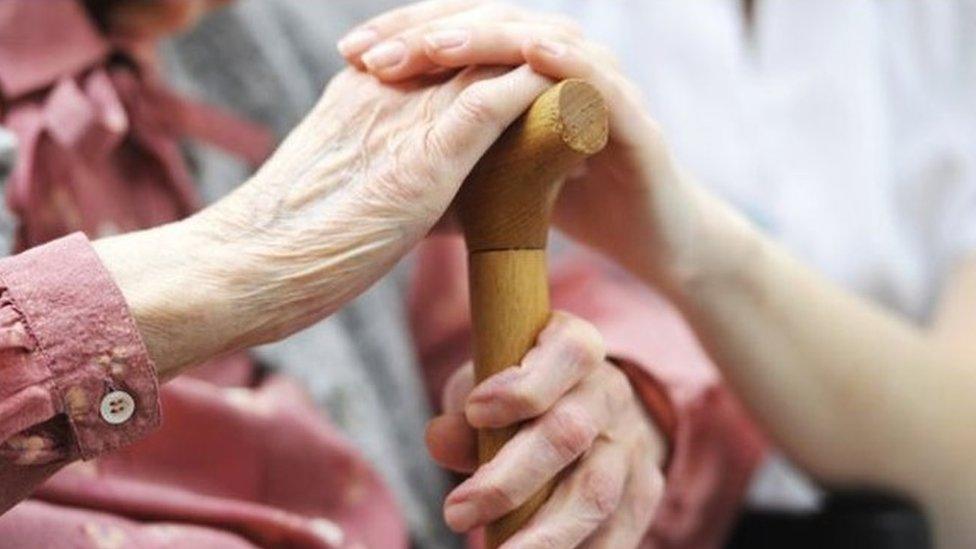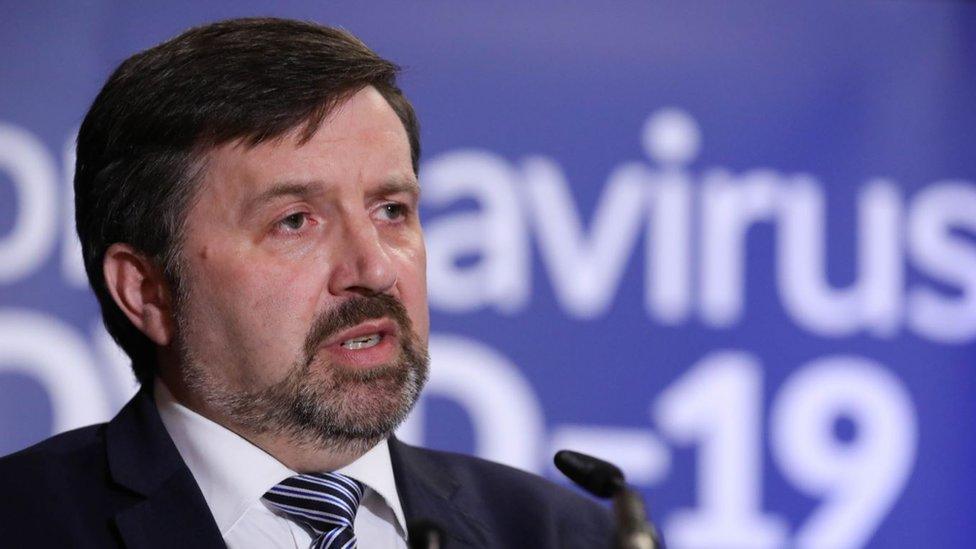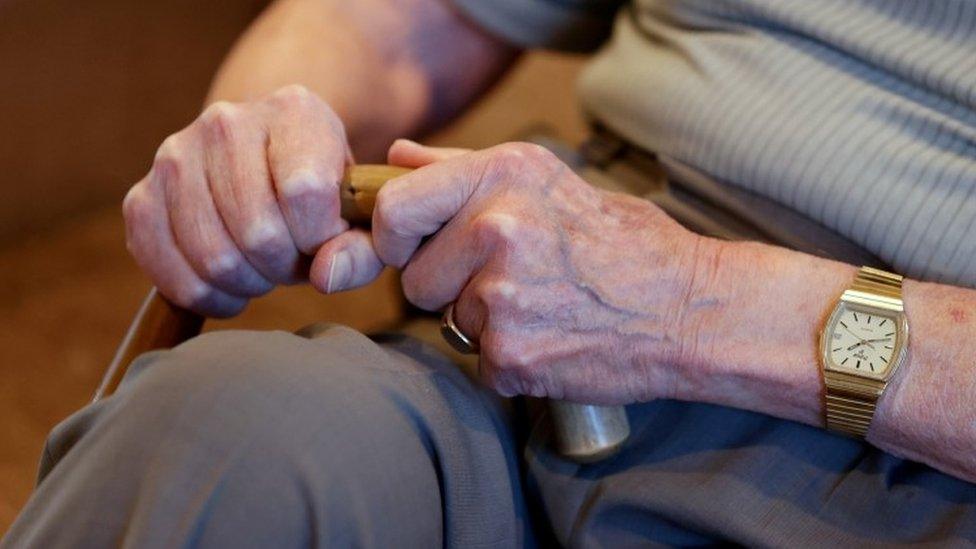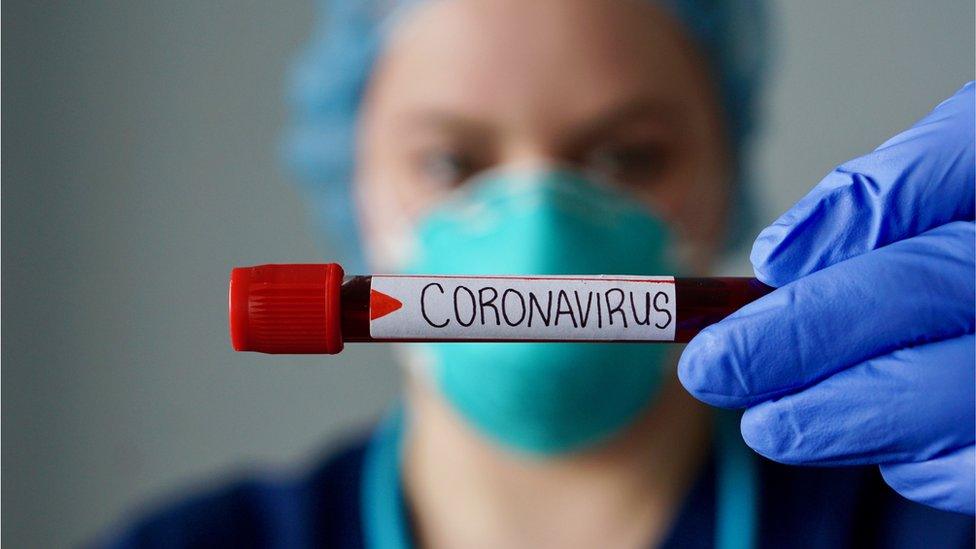Coronavirus: RQIA review spotlights breakdown in communication
- Published

The RQIA is responsible for monitoring the quality of health and social care services including carrying out care home inspections
So there is to be another health service review - it is not the first and it probably will not be the last.
This time it is into what prompted the unprecedented mass resignation of the Regulation and Quality Improvement Authority (RQIA) board.
All nine members walked out leaving only a short statement explaining their actions. So, why is this important?
As the health minister told the committee, boards are "my ears and eyes, and within those arms-length bodies, they are there to deliver the minister's will and direction - that is the function of a board".

Robin Swann said board members were his "eyes and ears"
An interim chair has been appointed but the RQIA does not currently have a fully operational board.
This latest review will join the many others that have taken place over the years.
While they are all on different issues many, including the Change or Collapse report by the Nuffield Trust in July 2019, highlight that a lack of good governance and leadership are common problems.
This review will be no different. Correspondence between the different parties, seen by BBC News NI, shines a light on many aspects of the health and social care service at the highest level.
Shout louder
Clearly, there was a breakdown in communication especially over reducing the number of care home inspections.
Most people would think there should have been general consensus on whether the number of inspections should be dramatically cut and agreement should have been reached between all parties, including the board, before the decision was announced.
It is also fair to think that during a pandemic - of all times - communication channels between all interested parties, including the health watchdog, should be open.
But former board members say they were not kept in the loop.
It is during a crisis that aspects of good governance come into play.
But clearly that did not happen.
Should the board have shouted a lot louder before resigning? Probably.
No efforts to mediate
Then there was the obvious failure to manage the developing fall-out.
Documents seen by BBC News NI reveal exchanges dating back to 23 March from Chief Medical Officer Dr Michael McBride to the then chief executive Olive Macleod, copying in the board's chair Mary McColgan, suggesting that the number of care home inspections should be reduced.
Other emails between March and May involving senior departmental health officials and members of the board, including the newly-appointed chief executive Dermot Parsons, highlight tensions between members and an organisation that is clearly unhappy.
While the Department of Health insists it had to move swiftly, surely if an organisation is well run, disputes and disagreements can be aired properly and consensus should be achieved without an entire board feeling it has no option but to walk out?
Of course mistakes can be made - after all, this is a pandemic.
But the timing of all this could not be more unfortunate.
Perhaps the most worrying aspect is the apparent failure to resolve the crisis earlier.
Sources have told BBC News NI that at no time did anyone try and intervene and mediate between the parties.
Sadly, that lack of intervention and willingness between everyone involved has, according to some charities and the commissioner for older people, left those at the heart of this story - the vulnerable men and women in care homes and their families - feeling even more abandoned.
- Published23 June 2020

- Published22 June 2020

- Published29 May 2020
